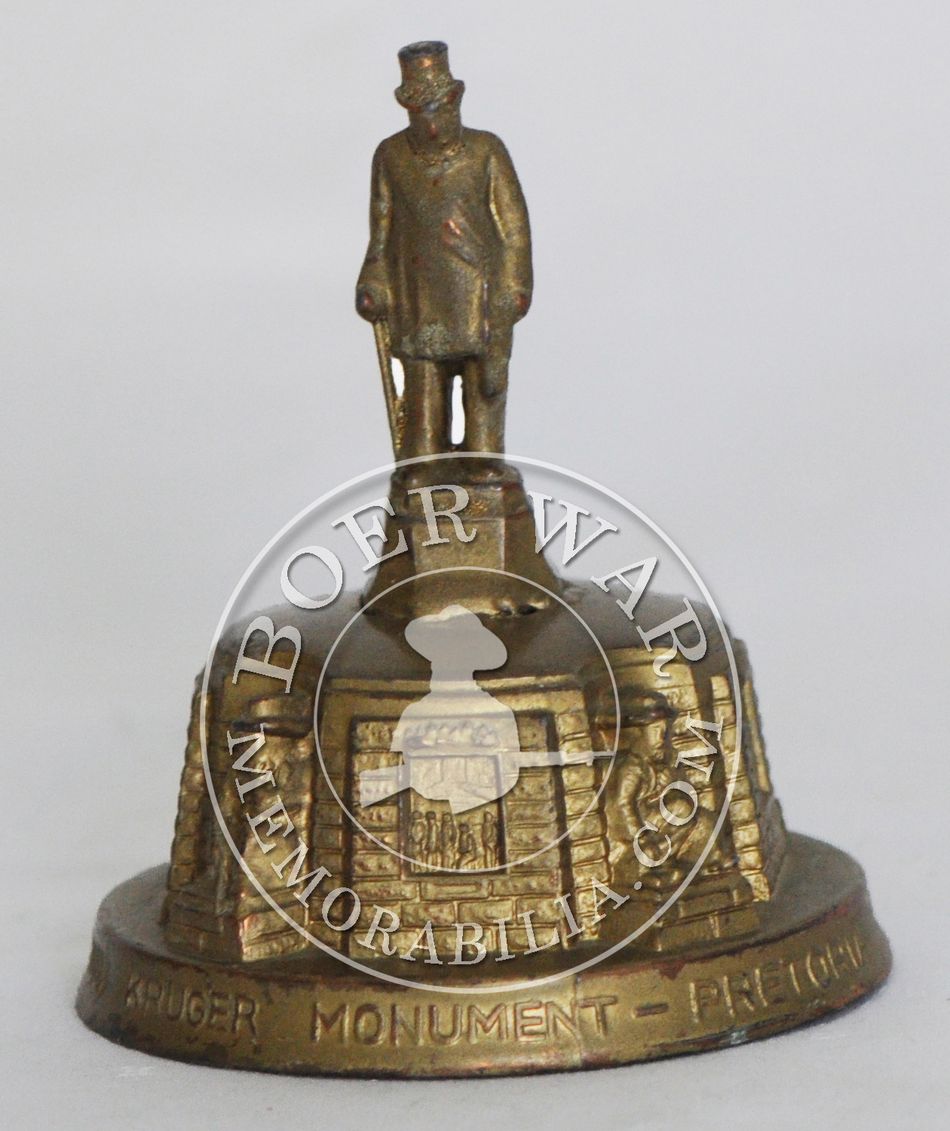|
|
Item Ref# FS3128
Paul Kruger Monument This small bronze washed metal statue is a depiction of four times President Paul Kruger and the four pioneering forefathers of the Boervolk, as found in Church Square, Pretoria.
Height: 90mm
General The original statues were found in a warehouse in Lourenco Marques - now Maputo (Mozambique) during the Anglo-Boer War. The British discovered them when they sought to cut-off the supply lines of the Boers.
These statues were commissioned by the Zuid Afrikaansche Republiek (ZAR) through the sculptor Anton van Wouw. Van Wouw was a Dutch settler in the ZAR (Transvaal) who fell in love with the country and its people. All the statues were made in Holland.
The four Boer base statues were regarded as war trophies and General Kitchener had them shipped to the UK for his enjoyment. Their return to South Africa was never an option.
It took twenty years for the matter to be progressed when Jan Smuts (with his then fame and statesmanship) managed to renegotiate (1920) their return through Alfred Milner (Secretary of State in South Africa).
Kitchener had drowned in June 1916 during the First World War onboard a warship (HM Hampshire) - it is believed at the hands of a Boer saboteur - who's entire family had died in Kitcher's concentration camps.
In March 1921, all four Boer statues were on-route back to the Transvaal to be erected in Church Square, Pretoria in front of the Boer's Raadsaal - where they had always been destined to be. |

Boer Command and Control
As regards our rank and file, they were as inexperienced in military matters as most of their leaders. The Boer is no soldier in the technical sense of the term. He was never subjected to military discipline, and unaccustomed to any restrictions.
It took him months to realise the absolute necessity for and inestimable value of good discipline. The burghers looked upon themselves as volunteers, and such they really were. Now, when the enemy had to be attacked in their forts or strongholds, the Boer officers had to call out volunteers, as it was hazardous to lay too much pressure on the burghers to charge any position without their consent.
To exercise too great power or authority over burghers was, at all times, especially at the beginning of the war, a risky thing. The officers knew well that the Boer is more easily led than driven.
Pieter Hendrik Kritzinger, Boer General
| Scripture |
|
For in much wisdom is much grief: and he that increaseth knowledge increaseth sorrow. Ecclesiastes 1:18 |

